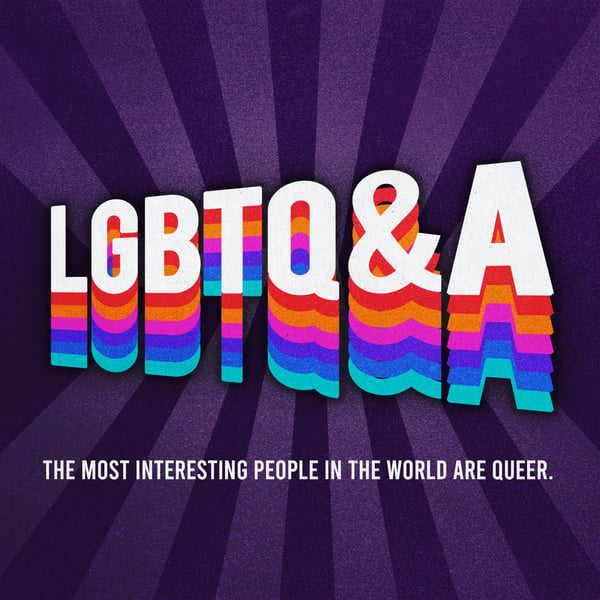Rodney Evans: How Losing His Vision Made Him a Better Director
LGBTQ&A
Jeffrey Masters
4.7 • 703 Ratings
🗓️ 27 August 2019
⏱️ 29 minutes
🧾️ Download transcript
Summary
Rodney Evans, best known as the writer-director of the 2004 film Brother to Brother, has a career that's spanned over 20 years. In his new documentary, Vision Portraits, Evans chronicles the lives and creative processes of four visually impaired or blind artists, including Evans himself. LGBTQ&A is hosted and produced by Jeffrey Masters. @jeffmasters1
Transcript
Click on a timestamp to play from that location
| 0:00.0 | Rodney Evans is a filmmaker, and when he started losing his vision, he had to really |
| 0:11.1 | change his entire approach to making films. |
| 0:14.2 | His new documentary Vision Portraits follows Rodney and other artists who are visually |
| 0:18.7 | impaired and or blind. |
| 0:21.3 | They've all kept working. |
| 0:23.1 | They've all kept creating art because, as Rodney says, a lack of vision doesn't inhibit |
| 0:27.8 | one's art. |
| 0:28.7 | It changes it, but it doesn't have to halt it. |
| 0:32.0 | From Luminary Media, I'm Jeffrey Masters, and this is LGBTQ and A. |
| 0:44.9 | Thank you. I'm Jeffrey Masters and this is LGBTQ&A. Thanks for being here. |
| 0:45.8 | Thank you for having me. |
| 0:46.7 | Early in the film, you say that you were afraid of people in the film industry finding out that you're visually impaired because you thought it might affect the work you could get in the future. And that to me is a very valid and real fear. |
| 1:00.7 | Right. So I wonder what changed why decided to come out about this now. |
| 1:06.0 | It just felt important to the film, honestly. Like it felt like I was having specific kinds of conversations |
| 1:11.5 | with these blind and visually impaired artists that was from an insider's perspective. |
| 1:18.5 | It felt like I was having shared experiences with them. You know, in relationship to the red |
| 1:25.3 | and white cane, for example, of just like when, when do you |
| 1:29.0 | start to feel the need to use it in life? When, you know, when can you stop quote unquote |
| 1:35.9 | passing as fully cited in the world? When are you bumping into too many things? When have you |
| 1:42.9 | had too many hostile encounters with people? |
| 1:45.9 | And so I think that the intimacy and the trust was coming through in the kinds of interviews that I was getting from the subjects in the film. |
| 1:53.6 | And then, yeah, I just became more of a character in the film. |
... |
Please login to see the full transcript.
Disclaimer: The podcast and artwork embedded on this page are from Jeffrey Masters, and are the property of its owner and not affiliated with or endorsed by Tapesearch.
Generated transcripts are the property of Jeffrey Masters and are distributed freely under the Fair Use doctrine. Transcripts generated by Tapesearch are not guaranteed to be accurate.
Copyright © Tapesearch 2025.

